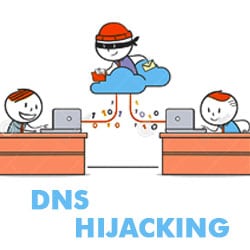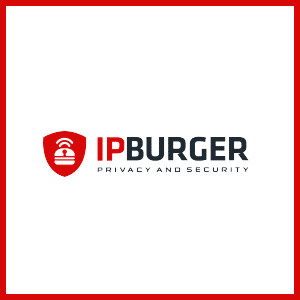DNS - Domain Name System (système de noms de domaine), fait partie de l'épine dorsale de l'internet qui vous permet de naviguer sur l'internet en toute transparence.
 Comment fonctionne le DNS
Comment fonctionne le DNS
You can view a DNS as a phonebook directory where a certain name has a corresponding number. In a nutshell, a DNS is a translator between us and the internet (Computers and other devices in the network). That’s, computers only understand numbers; we humans understand words better.
When you want to access a certain service on the internet, the first thing you do is type the domain address, e.g., google.com. But the internet won’t understand that. What it will understand is the IP address, e.g., 216.58.204.14. It’s the DNS work to look up for the corresponding IP address of the domain name.
These IP addresses are stored in DNS servers. These are special kind of computers that resolve, translate and look up for the domain names and their corresponding IP addresses. The internet is made of many DNS servers, and if one DNS server can’t resolve a domain name to its IP address, it passes the request to other DNS servers till the IP address is found. Sometimes, the domain name may not have a corresponding IP address, and you might get a response, “We’re having trouble finding that site or the website doesn’t exist.’’
 Détournement de DNS
Détournement de DNS
Comme indiqué précédemment, il existe plusieurs serveurs DNS, et les demandes DNS sont transmises à différents serveurs DNS jusqu'à ce que des résultats soient trouvés.
DNS hijacking is a malicious practice that involves redirecting your DNS queries to a wrong DNS server. When your query is finally serviced, you end up getting the wrong results. DNS hijacking is dangerous in that you may land on a spoofed site that may look like the legitimate site you wanted to visit. For instance, a spoofed website. It’s even more dangerous when phishing is involved.
In both cases, you might end up giving your confidential and sensitive information unknowingly such as emails, usernames, and their passwords, your credit card number and other Personally identifiable information (PII) that could be used in identity theft and fraud.
Cela peut être parfois ennuyeux et parfois dangereux. Par exemple, si vous tapez un nom de domaine qui n'existe pas, votre FAI peut en profiter pour vous rediriger vers ses sites web chargés de publicités. Certaines de ces publicités peuvent être intrusives et violer votre vie privée.
Comment vos DNS sont détournés
- Serveur DNS malveillant
Some DNS servers on the internet are compromised, and their purpose is to enable malicious actors to hijack your DNS. When your DNS queries traverse the unsecured internet, you won’t know what DNS server services it. If it gets redirected to a compromised server, your DNS will be hijacked. Good thing, hacking a DNS server is hard, but redirecting your DNS traffic can be quite easy. For instance, there are many free DNS servers online claiming that they can bypass censorships and unblock websites. Since they are free, your DNS traffic will be used to service their costs.
- Logiciels malveillants
Malware is harmful, and when they target your DNS, they may change your DNS settings to those of a compromised DNS server. This will redirect all your internet traffic to the DNS server, and your personal private information will be harvested without your knowledge. As said earlier, when spoofing and phishing are involved, the damage can be much worse as a result of identity theft.
D'autres acteurs malveillants ne vous causeront pas beaucoup de tort, mais vous leur ferez gagner de l'argent. Dans ce cas, vous obtiendrez des résultats chargés de publicités redirigées et interminables.
- Interférence du fournisseur d'accès à Internet
Les FAI malhonnêtes peuvent également détourner votre requête DNS. Cela se produit le plus souvent lorsque vous tapez des noms de domaine qui n'existent pas. Votre FAI détournera la réponse "le site web n'existe pas" et la remplacera par un site web contenant le même message mais chargé de publicités. Ce site web peut également être utilisé pour collecter vos données.
 Comment se protéger contre le détournement de DNS ?
Comment se protéger contre le détournement de DNS ?
- Utiliser IPBurger VPN
IPBurger VPN routes your internet traffic via a secure encrypted tunnel. This ensures that your DNS queries are not exposed to prying eyes such as cybercriminals who can redirect them to rogue DNS servers. Hence IPBurger VPN provides you security and privacy while surfing the open internet.
- Utiliser un logiciel antivirus/antimalware réputé
Reliable antivirus/antimalware software also protects you against unauthorized system changes. This means malware can’t change your DNS settings. Also, remember to update your antivirus/antimalware software regularly.
- Éviter les serveurs DNS gratuits
Free DNS servers may promise a lot such as giving you access to blocked websites and other internet services. Some may work, and some will only harvest your data and also give you results loaded with ads.
- Mettez régulièrement à jour le mot de passe de votre routeur
Une bonne gestion des mots de passe exige que vous changiez votre mot de passe après une certaine période ou lorsque vous avez été compris. La plupart des routeurs courants sont dotés d'un mot de passe par défaut que l'on peut trouver librement en ligne. Si vous ne modifiez pas le mot de passe par défaut, il y a de fortes chances qu'un cybercriminel modifie les paramètres DNS de votre routeur et détourne ainsi vos requêtes DNS.
- Soyez vigilant lorsque vous surfez sur Internet
DNS hijacking can happen to anyone including authoritative sites – this happens when authoritative DNS servers are poisoned. In this case, you might get legitimate results loaded with ads, or you might be redirected to a new page you have never seen before.

 Comment fonctionne le DNS
Comment fonctionne le DNS Détournement de DNS
Détournement de DNS Comment se protéger contre le détournement de DNS ?
Comment se protéger contre le détournement de DNS ?

